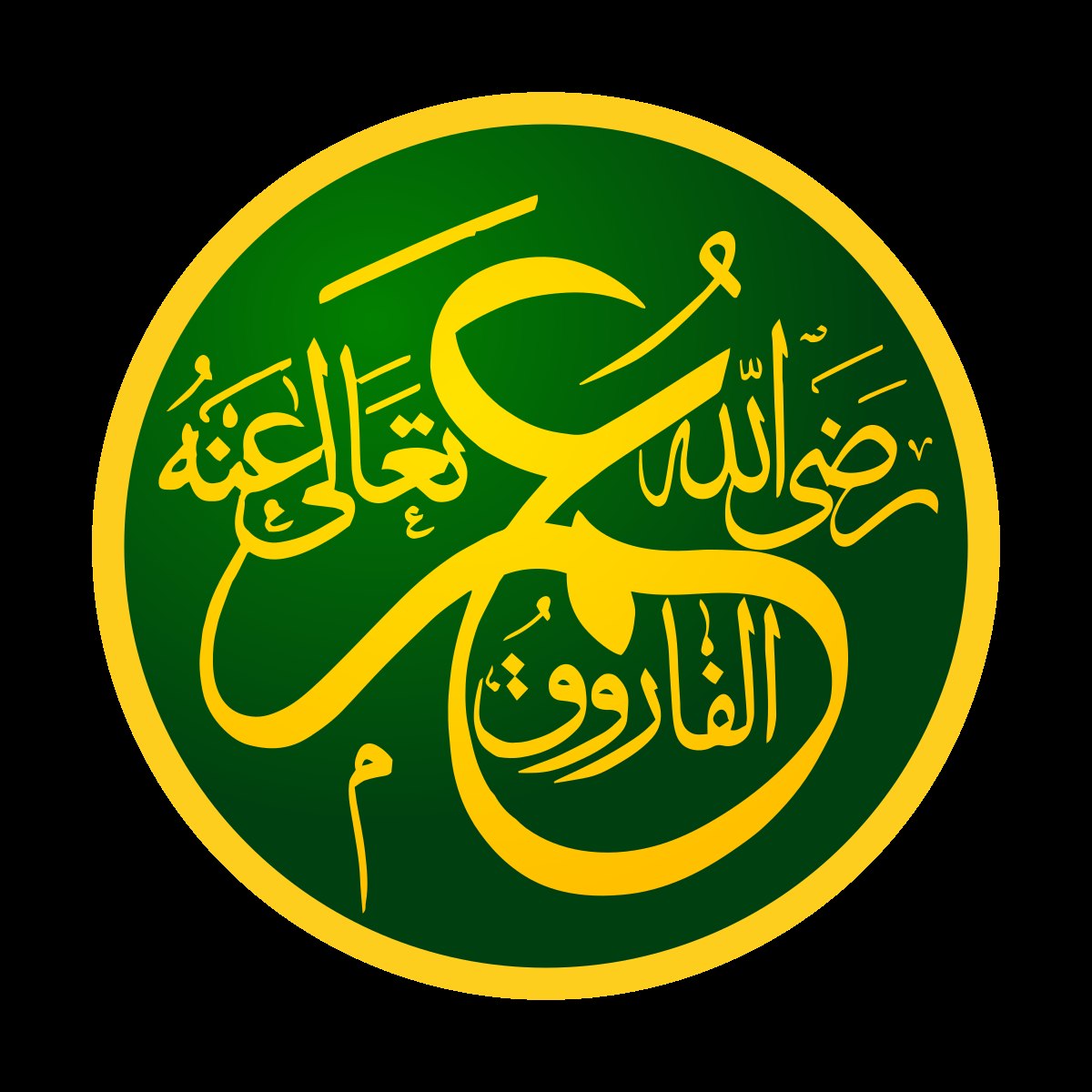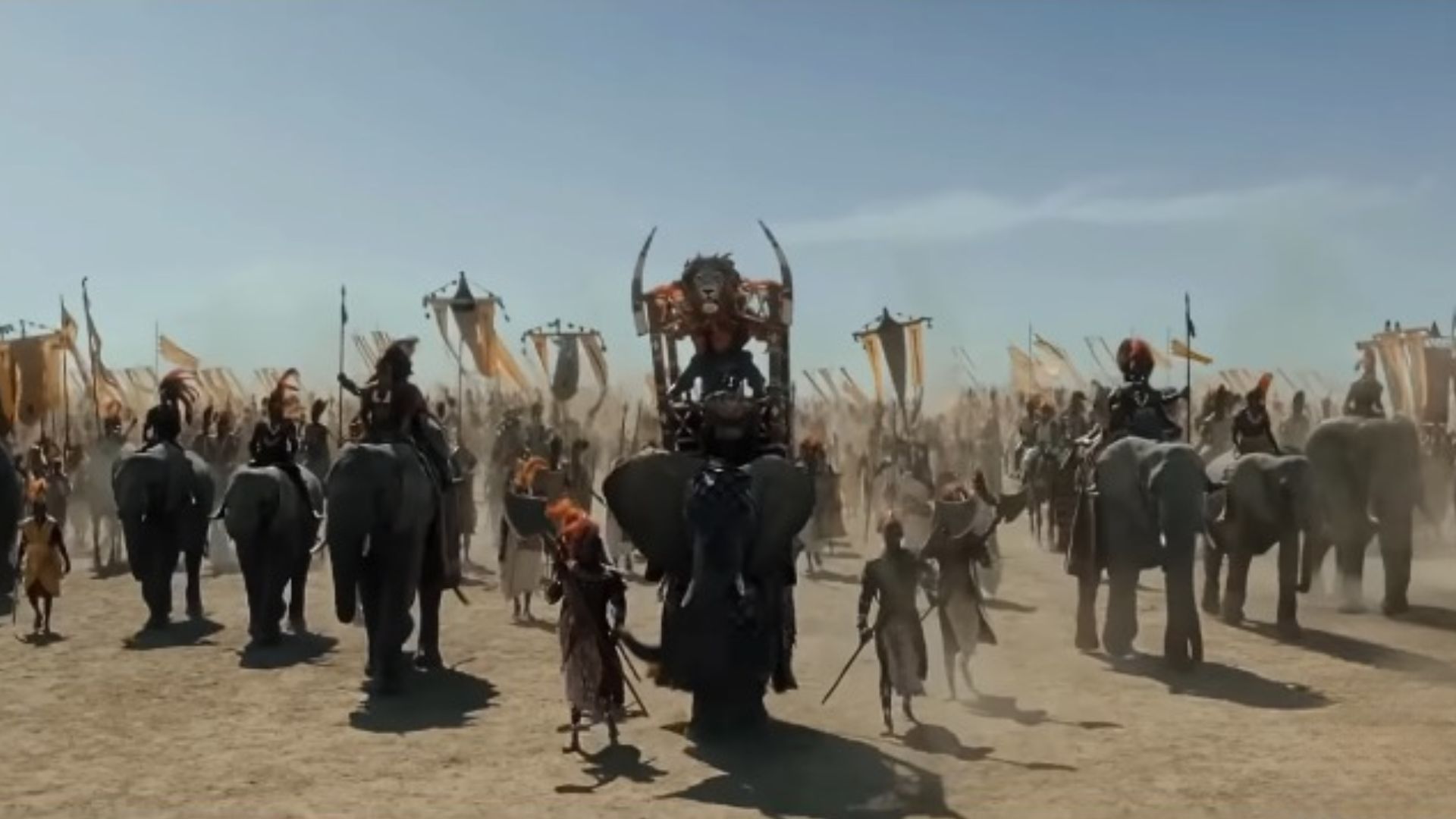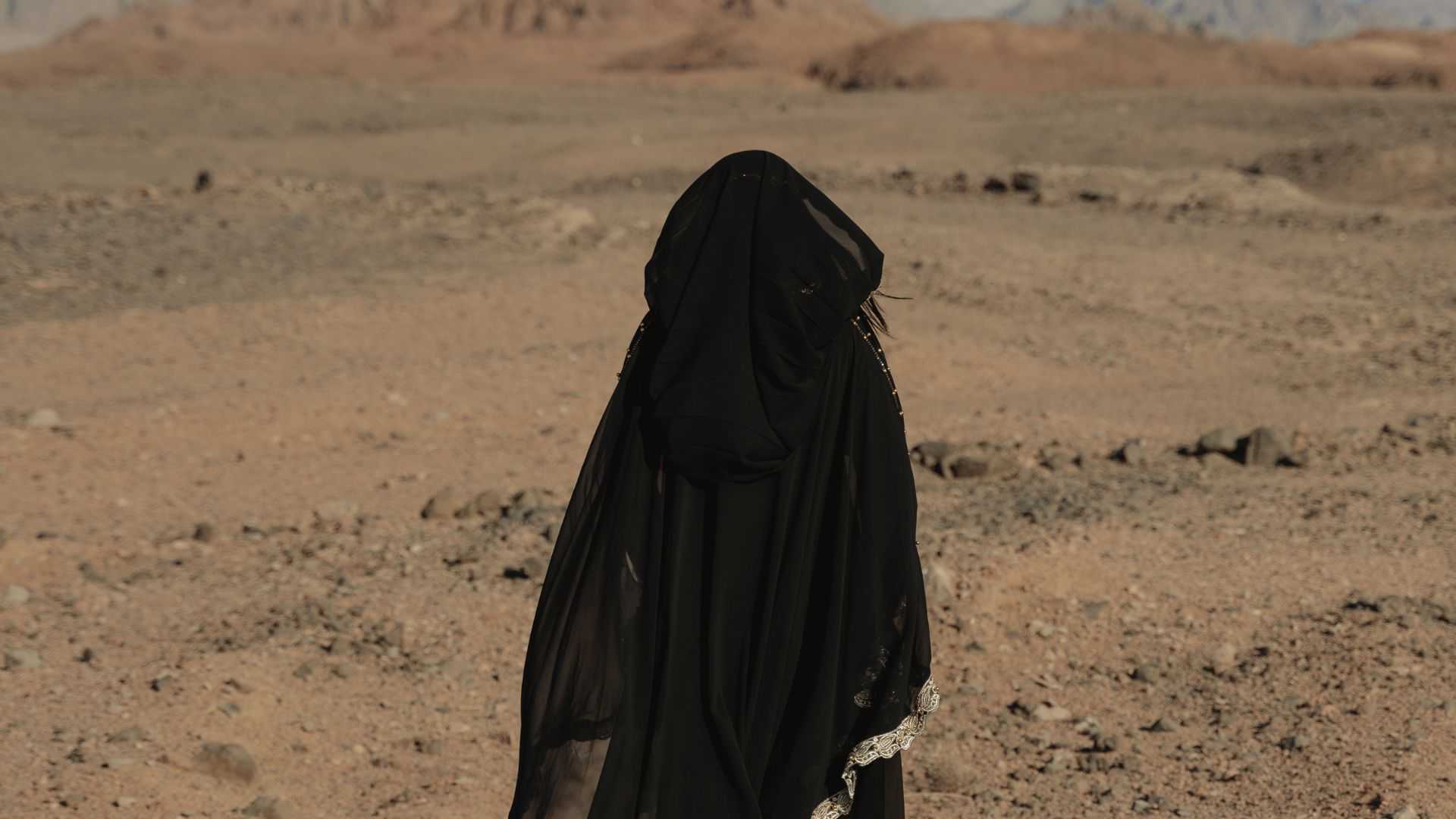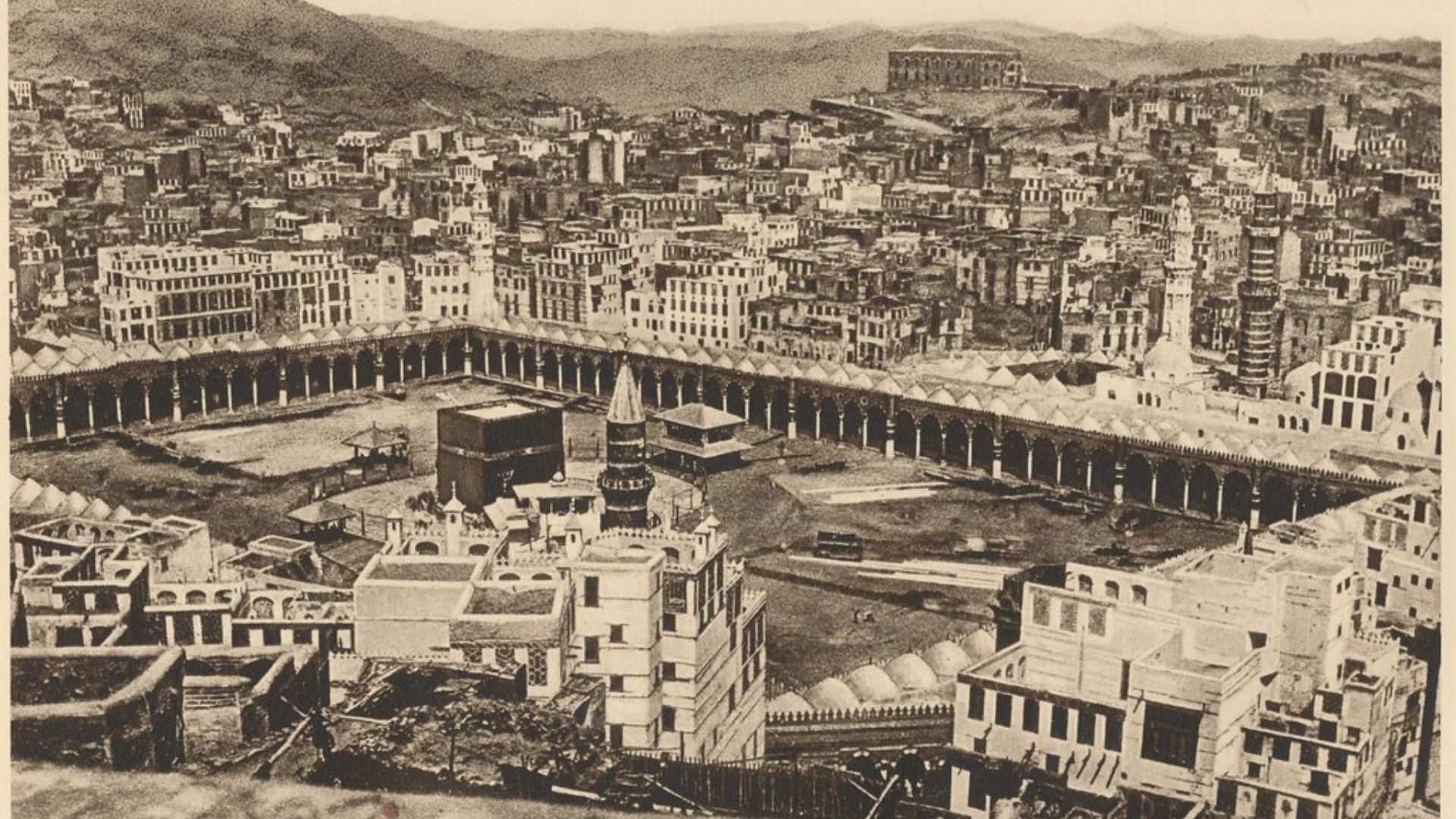Story and Life of Hazrat Umar Farooq (Hazrat Umar Al-Khattab) is an exemplary one. One of the most powerful and well-respected Muslim caliphs was Hazrat Umar Ibn-Al-Khattab. He was a member of the Mecca-based Banu Adi familial tribe of Quraish. After Hazrat Abu Bakar (R.A.), he served as the second Caliph and was the Prophet Muhammad’s closest associate (SAW). One famous name that comes to mind while considering the individuals who were instrumental in the spread of Islam throughout history is Hazrat Umar (R.A).
The biography and life of Hazrat Umar Farooq (R.A.) will be discussed in this article. There are numerous attributes that can be used to characterise him, including his bravery, embrace of Islam, caliphate period, and early life.
Early Years
He was born in Makah in the Banu Adi family, a tribe of the Quraish around 583 A.C. He started out as a non-Muslim and was a merchant by trade. Before converting to Islam, Umar (R.A.) was one of Muhammad’s most ferocious adversaries (SAW).
His Outward Appearance
He had white skin and a reddish undertone to his features. He had a robust build, was tall, and was bald. He wasn’t small or feeble; he was incredibly strong. He moved swiftly when walking, and talked boldly when speaking.
The Years of Youth
At a time when few people could read and write, Hazrat Umar (R.A.) was one of the educated members of the Quraish family. He also learned about the art and science of genetics and was knowledgeable about Arabian history. Umar (R.A.), a well-known great wrestler, debater, and lively person in his young time, was very daring. He was also well known for his expert horsemanship. He was a successful Quraish ambassador, a smart man, and a well-known orator.
Adoption of Islam
Umar (R.A.) possessed perfect intelligence and physical prowess, but despite this, he rejected the Prophet Muhammad (PBUH) and the Messenger of Allah SWT (SAW). He was one of Prophet Muhammad’s fervent adversaries (SAW).
He resisted Islam and declared he would assassinate Hazrat Muhammad (SAWW). He learned that his sister and brother-in-law had converted to Islam while en route to carrying out his plan to murder the Holy Prophet (SAWW). He visited his sister Fatima, where Khabab (R.A) was teaching her sister and his brother-in-law the Qur’an at her home (R.A). He started arguing with them after asking if they accepted Islam. He gave his sister a severe slap, causing her to bleed profusely. When he saw her bleeding, his anger subsided and he asked her sister to show him the pages on which the Quran is written. After having a bath, he began to recite Surah Ta Ha from the Quran. He came to the verse:
“Indeed, I am Allah. There is no deity except Me, so worship Me and establish prayer for My remembrance.” Quran [20:14]
After reading the Holy Quran, he was deeply moved by them and acknowledged them as Allah’s words. When Hazrat Khabbab (R.A.) heard this, he emerged from hiding within the house and exclaimed, “O Umar! Information that will please you. It appears that the Prophet Muhammad (SAW )’s prayer from last night was granted in your favour. “O Allah, strengthen Islam with either Umar b. Khattab or Abu Jahl, as You desire”, he prayed.
Then Hazrat Umar visited Muhammad (SAW). Muhammad (SAW) approached him and said, “Umar!” What brings you here?” ” I’m here to adopt Islam”, he declared, as it was mirrored in Makah’s atmosphere. In this manner did he embrace Islam. When he converted to Islam, he was 39 years old.
Why was Umar called Farooq?
Because of his Great sense of justice and piety, Prophet Muhammad gave him this title: Because of their fear of the Quraish chiefs, Muslims were unable to perform Salah in public. However, when Hazrat Umar (R.A.) embraced Islam and joined the Islamic community, believers arrived openly since they knew that no one had dared to confront Umar (R.A). He was the one who initially recommended to the Prophet of Allah (SAW) that they pray at the Holy Kaaba, where the Messenger of Allah led the Muslim prayer for the first time. As a result of Hazrat Umar’s (R.A.) daring suggestion, Hazrat Muhammad (SAW) bestowed upon him the title of Al-Farooq, which is Arabic for “the one who distinguishes between the right and the evil,” on him.
His Piety
Umar (R.A.) had the utmost humility before Allah and lived frugally. He would patch his cloth with leather, and his food was really gritty. Despite his high regard, he used to carry a water skin on his shoulders. He never cracked jokes and used to laugh infrequently. ” Death is adequate as an admonition, O’ Umar”, was engraved on his ring.
He remarked after he was chosen to be the Caliph: “Only two pieces of clothing—one for the cold season and the other for the dry season—may be taken (for me) from the Treasury. I am only an ordinary man among the Muslims (i.e., nothing unique about me), thus the subsistence of my family will be the equivalent of an average Quraish man, not the wealthiest among them.”
He would eat bread and oil till his skin grew pale and brown during times of drought. Umar (R.A.) used to say: “What a bad leader I am if I eat my full and the people go hungry.”
Caliphate of Hazrat Umar (R.A)
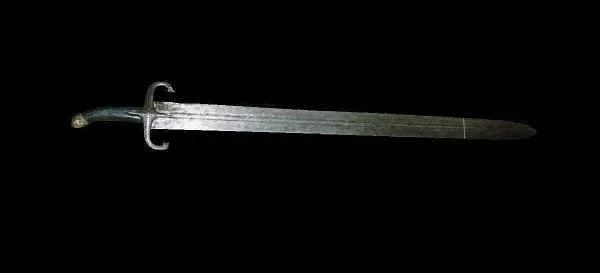
When Hazrat Muhammad (SAW) passed away, Umar (R.A.) was overcome with grief. Hazrat Abu Bakar (R.A.) comforted him at that time. The question of who would assume responsibility following the passing of the Prophet Muhammad (SAW) arose at that time. Umar (R.A) addressed the Muslim community and praised Hazrat Abu Bakar (R.A) for his wonderful character and urged elevating him to the position of the first caliph of Islam. Hazrat Umar (R.A.) assumed leadership after Hazrat Abu Bakar (R.A.) passed away and became the second Caliph. He closely emulated Muhammad (SAW), going above and beyond. Under Hazrat Umar’s leadership, Islam rose to prominence on a global scale, and the powerful Persian and Byzantine empires fell before the army of Islam.
He was the true founder of the political system of Islam since he was not only a victor but also a great administrator who created an effective system of administration. He established Divine Law) as the law of the newly established International Islamic State; he ensured internal security by establishing the police force; he provided stipends to the poor; he built military bases and forts to protect Islamic armies; he founded new cities to advance Islamic culture and civilization; he improved the Islamic State’s agriculture and economy; he established the educational system; in short, he was the founder of an Islamic State.
In a nutshell, the Life of Hazrat Umar (RA) is the life of an ideal Muslim. He was the epitome of righteousness, morality, piety, humility, and character. There is not a single instance where he performed any of his roles—personal or professional—less than flawlessly. He gave intense performances to all of them.
Death of Hazrat Umar Farooq (His Martyrdom)
According to Imam ibn Kathir, Umar (R.A.) prayed to Allah in 23 Hijri when his Hajj rituals were complete, pleading with Him to grant him martyrdom in the country of the Prophet (S.A.W.) and to take him to Himself, as is narrated by Zaid bin Aslam: Umar (R.A.) said:
“Oh Allah! I ask you for martyrdom in Your cause and death in the land of Your Messenger (S.A.W.).” (Bukhari: 1890)
Indeed, Allah is compassionate to whom He pleases. Umar (R.A.) was stabbed with a two-bladed dagger while performing the Fajr Salah (dawn prayer) by Abu Lulu Al- Fayruz, a Magian (the fire worshipper) and unbeliever of Roman descent. Three times, one below the naval, he was stabbed by him. Umar (R.A.) as a result collapsed while heavily bleeding.
To finish the prayer, he asked Abdul Rahman bin Awf (R.A.) to take his place. In the mosque, Abu Lulu withdrew with his blade but continued stabbing anybody who came in his path until he had thirteen people stabbed, of whom six had died as a result of their wounds. When he knew he was about to be defeated by Abdullah bin Awf (R.A.), Abu Lulu (may Allah’s punishment be upon him) stabbed himself to death.
Blood was pouring out of Umar (R.A.)’s wound as he was being transported to his home. These all happened before dawn.
Then Hazrat Umar (R.A.) asked: “Who killed me?”
His companions replied, “Abu Lulu, the Magian.”
Then Hazrat Umar was delighted and said: “Praise be to Allah who Has not afflicted me from the hands of someone who subscribes to monotheism. I used to forbid you from sending to us any uncouth infidel but you disobeyed me.”
Then he said: “Call for my brothers.”
They asked: “Who?”
Hazrat Umar (R.A.) said: “Uthman, Ali, Talhah, Zubair, Abdul Rahman bin Awf, and Sad bin Abi Waqas.”
When they arrived, Hazrat Umar (R.A.) said:
“I have looked into the affairs of the Muslims and I found you six the foremost and the smart. I do not see the authority fitting for anyone except one of you. If you are upright, then the affair of the people will be upright. If there is disagreement, it is because you had disagreed (amongst yourselves).” His blood was mopped for him, and he said: “Consult for three days, and in the meantime, Suhayb Ar-Rumi should lead the people in prayer.” They asked: “Who should we consult with, O’ Prince of believers?” He replied: “Consult with the Immigrants and the Supporters as well as the commanders of the armies.”
He asked for some milk to drink. They could see the milk’s whiteness pouring out of his wounds as he sipped it, and they knew he would die. He stated:
“Time has come (i.e. of death). If I had the entire world, I would have given everything up in order to free myself from the terrifying departure point.”
His soul was then taken. On 26 Dhul Hijjah, 23 A.H., this occurred (Wednesday 7th of November 644 AD). His era lasted for ten years, and he was sixty-three years old.
In accordance with Umar’s (R.A.) wishes, he was buried in Masjid Al-Nabawi beside the Prophet Mohammad (S.A.W.) and Caliph Abu Bakr (R.A.) with the permission of Hazrat Aishah (R.A.)
Lessons from the Life of Hazrat Umar (R.A.)
He represented righteousness and truth, austerity and piety, integrity and humility. He was also a superb statesman, visionary, and reformist, as seen by the army reforms he was responsible for. Even the non-Muslim citizens of the Islamic state received the same treatment from him in the past. His strict treatment of his governors and judges ensured the creation of the ultimate welfare state. When his opponents converted to Islam, he was kind toward them and did not harbor any personal grudges, but he also displayed strictness and rigidity when it came to the application of Islamic law. He embodied how believers are described in the Qur’an as being “Harsh on unbelievers and Merciful among themselves.”
Despite all the wonderful news from the Holy Prophet (may peace and blessings be upon him), Hazrat Umar never displayed any laziness in carrying out his obligations both individually and collectively. We may all benefit greatly from studying the life of Hazrat Umar (R.A.), and we need to all seek to follow him.
We as Muslims can learn a lot of life lessons from the Life of Hazrat Umar Farooq (R.A.). May Allah be pleased with him.
Read more about the History of Islam or the Lives of Prophets. Or follow our Instagram handle to get daily Islamic reminders.


